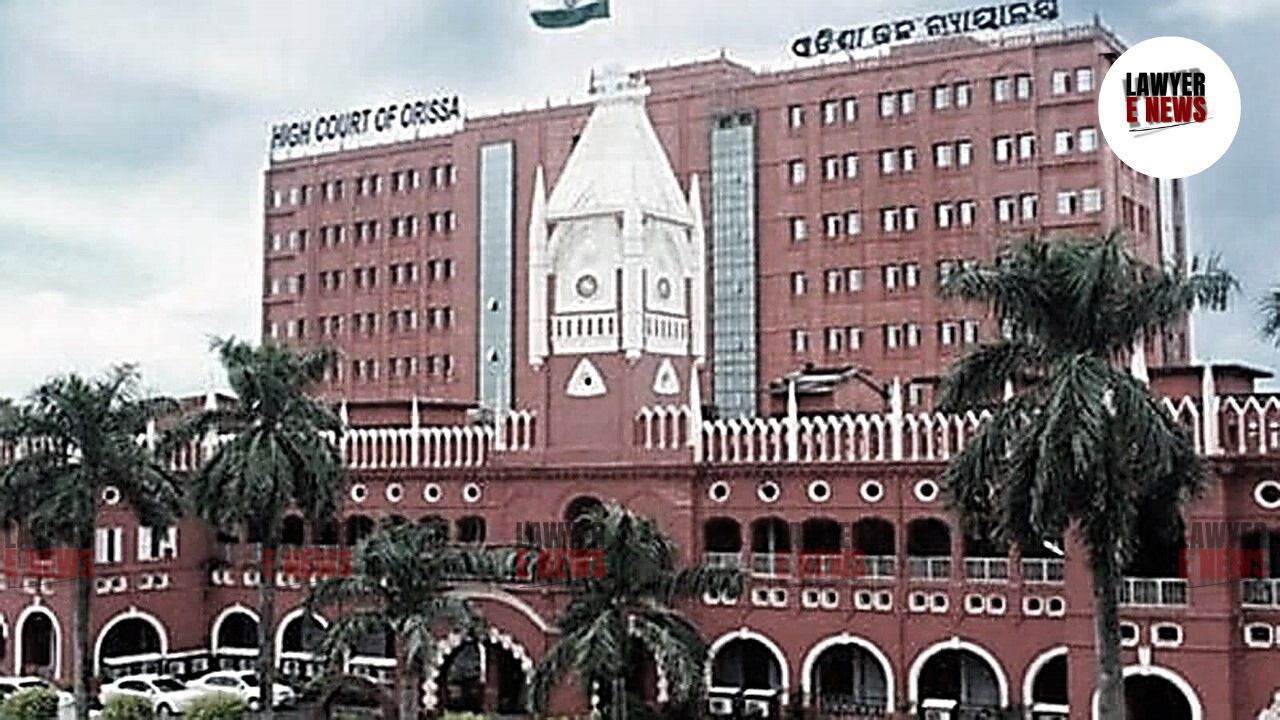-
by Admin
15 February 2026 5:35 AM



Orissa High Court rejected the bail application of the petitioner accused of involvement in an international conspiracy linked to Pakistan's ISI. Justice Sashikanta Mishra emphasized the seriousness of the allegations, the prima facie evidence of financial transactions linked to a Pakistani intelligence officer, and the larger implications for national security while denying bail under Section 439 of the Cr.P.C.
The Court remarked: “The prima facie evidence of financial links with Abdul Hamid, a Pakistani national and intelligence officer, indicates the petitioner’s involvement in a network with grave implications for national security. In such cases, the interests of justice and public safety must take precedence over individual liberty.”
The petitioner, Mohammad Iqbal Hussain, has been in custody since September 20, 2023, in connection with a case registered under Sections 419, 420, 465, 467, 468, 471, 120-B, and 34 of the Indian Penal Code, along with Sections 66(C) and 66(D) of the Information Technology Act, 2000.
The case arose from an investigation by the Special Task Force (STF) of Odisha Police into a financial and technological conspiracy allegedly involving foreign nationals, including members of Pakistan’s intelligence agency, the ISI. According to the FIR, the conspiracy involved illegal sharing of OTPs, activation of SIM cards, and money laundering using fake Paytm wallets, with direct instructions from Abdul Hamid, a Pakistani national.
The petitioner was implicated after evidence emerged of monetary transactions into his Paytm account at the direction of Abdul Hamid, as well as the use of SIM cards registered in his name in suspicious UPI transactions.
Justice Sashikanta Mishra observed that the petitioner had direct financial links with Abdul Hamid, an intelligence officer of Pakistan’s ISI. The Court noted:
“Investigation reveals the transfer of money by co-accused Abhijeet Sanjaya Jambure into the petitioner’s Paytm account at the explicit direction of Abdul Hamid, indicating the petitioner’s involvement in the conspiracy.”
The Court referred to the recovery of SIM cards from the petitioner, which were allegedly used in illegal financial transactions. These activities were found to be linked to the larger conspiracy involving sharing OTPs and activating accounts for pecuniary gain.
Citing the potential threat to national security, the Court underscored the seriousness of the allegations:
“The involvement of foreign intelligence operatives and the petitioner’s link to financial transactions at their behest point to a deep-rooted conspiracy. Such activities have grave implications for national security, and bail cannot be granted lightly.”
The petitioner’s counsel argued for parity with co-accused individuals who had been granted bail in related cases. However, the Court distinguished the petitioner’s role, stating:
“Unlike the co-accused, the petitioner’s case involves direct financial transactions with a Pakistani national linked to the ISI. Parity in bail cannot be claimed where the gravity of the allegations and the roles of the accused differ significantly.”
The Court further noted that bail applications of similarly placed co-accused, such as Abhijeet Sanjaya Jambure, were also denied.
Justice Mishra relied on the principle that prima facie evidence of culpability suffices to reject a bail application in cases involving serious allegations. The Court highlighted:
“The transfer of money, the use of SIM cards in illicit transactions, and the petitioner’s connection to Abdul Hamid provide prima facie evidence of involvement. These facts warrant continued custody to facilitate a thorough investigation.”
Dismissing the bail application, the Court concluded: “In the considered view of this Court, the petitioner’s release on bail at this stage would jeopardize the investigation and potentially endanger national security. Accordingly, the bail application is rejected.”
This judgment underscores the High Court’s cautious approach in granting bail in cases involving national security concerns. It reaffirms that courts must prioritize public safety and national interest over individual liberty when allegations involve links to foreign intelligence operatives or international conspiracies.
Date of Decision: January 17, 2025
